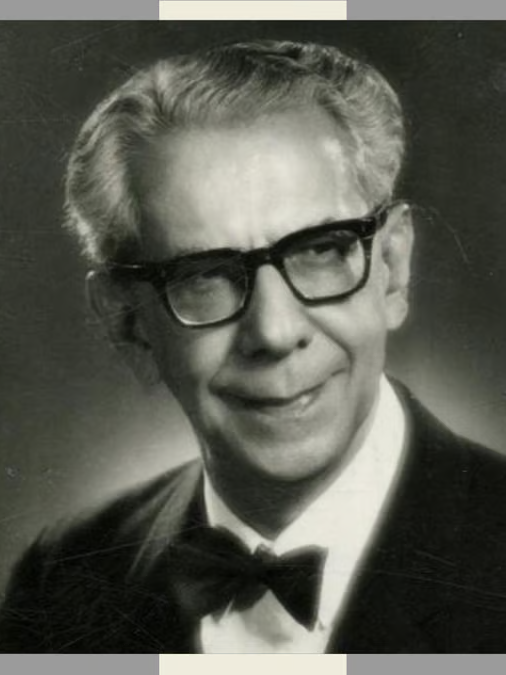
Happy 75th Republic Day to all Indians. The Constitution of India came into force on 26 January, and it is no surprise that its foremost expert shares a connection with this date. On the same day in 1996, Shri H.M. Seervai, a Padma Vibhushan awardee, former Advocate General and most importantly, the Constitution’s foremost expert passed away at the age of 89. The name ‘Seervai’ is synonymous with Indian constitutional law. Whenever someone is stuck on a proposition of constitutional law, it is Seervai’s writing that is invoked to find a solution.
Seervai appeared in several landmark cases. In his early days at the Bombay Bar, he was engaged as the Junior Counsel by the government to defend the Bombay Prohibition Act which enforced prohibitions on liquor. Interestingly, Seervai was a lifelong teetotaller and he assisted Advocate General Daphtary, who enjoyed his alcohol. Thereafter, he appeared in several key cases, one of which was Kesavananda Bharti v. State of Kerala (the basic structure case), wherein he was engaged by the Union government to defend its position. In fact, the story goes that Seervai’s condition for accepting the brief was that he would open the case for the government and argue first. The government accepted the condition despite it violating a constitutional provision that grants the Attorney General the right to first audience in a Court. Attorney General Niren De was not happy with this arrangement and even complained to Prime Minister Indira Gandhi. However, ultimately, Seervai prevailed. Interestingly, although Seervai argued against the basic structure doctrine in this case, he later changed his views on the doctrine in light of the National Emergency imposed in 1975-1977.
Seervai was known as a man of principles. His favourite quote was “without courage there cannot be truth. And without truth, there can be no other virtue”. He lived by this ideal. As the Advocate General for Bombay, he declined to defend government’s language policy against Anglo-Indian schools because he found it unjust and unconscionable. In fact, he resigned as the Advocate General when he felt his office was being undermined by Law Minister A.R. Antulay, who had appointed an advocate as a ‘Honorary Legal Adviser’ to the state government. Seervai thought the appointment undermined the prestige of the office of Advocate General who is the state’s premier law office. Even as a young lawyer, when Seervai felt a Judge was guilty of improper conduct, he carried the matter to Chief Justice Chagla. His crusade against the Judge left his senior Jamshedji Kanga upset. However, Seervai refused to compromise on his principles and even offered his resignation from Kanga’s chamber.
Seervai’s courage was visible in his arguments as well and he never shied away from speaking his mind, a virtue that later translated in his writings as well. Once while arguing a case of preventive detention before Chief Justice Ray, Justices Beg and Singh, he tried to establish a distinction between punitive and preventive detention. However, Justice Beg was not convinced and remarked, ‘all detention is detention and he did not understand the difference between the two’. Seervai was not impressed. The events that follow are summarised in the book ‘Evoking Seervai’ and are reproduced verbatim.
“Seervai lowered his voice and chided the judge: ‘My lord, there is a clear difference between preventive detention and punitive detention even though it may not always be apparent. For instance, there is a time when it is day and there is a time when it is night. In between there is dawn and later, dusk when it is difficult to insist at a particular point whether it is day or night, but only a strange mind would discern no difference between day and night.’ There was silence in the court room.”
Although Seervai’s contributions to India are plenty, the one that etched his name in the annals of constitutional law for perpetuity was his book ‘Constitutional Law of India’ a three-volume commentary on the Constitution and a critical masterpiece. Seervai himself believed that the book was his most abiding and enduring contribution to law. He once remarked, “it seems to me that my best contribution to Constitutional and Administrative Law in our country does not lie in my arguing constitutional cases before the Supreme Court and various High Courts. The best contribution that I can make is to embody in the successive edition of my book the result of much reflection and careful and patient analysis of judicial interpretation of our Constitution.”
Seervai started writing his book in the year 1961, and ultimately published it in 1967. His dedication to write and revise the book was one of the reasons he refused a Supreme Court Judgeship and the office of the Attorney General. If Seervai would have accepted the Judgeship, he would have served as a Judge for 15 years out of which five and a half would have been as the Chief Justice of India. Given his dedication to the book, it seemed destined that one of his final acts before he left for his heavenly abode, was revising the last edition of the book. It is believed that Seervai completed the revision on 25th January, and passed away the next day.
Remembering him today!

Leave a comment